The author, podcaster and leader of IF:Gathering on platform, preaching to men and why she’s as happy teaching the Bible in her living room as she is to thousands
If you’ve ever read one of Jennie Allen’s books or listened to her podcast, you may feel as if you already know her. From the bathroom floor, crying-in-a-heap surrender moment in her first book, Anything: The prayer that unlocked my God and my soul (Thomas Nelson), to candid descriptions of her husband’s battle with depression in her latest offering, Allen’s output feels strangely intimate.
The ‘About’ page of her website is written in a language that may seem flowery to a UK audience but it is an honest reflection of who Allen is: an all-American girl brought up in the Church who married a pastor, raised four kids (including one adopted son from Uganda) and just so happened to become a New York Times bestselling author in the process. But the temptation for us cynical Brits to pigeonhole her would be to underestimate Allen entirely.
Allen attributes her passion for teaching and discipling others to the mentors who invested in her as a student. After gaining a masters in biblical theology, she spent 15 years running small groups in her living room before her bathroom floor encounter with God. “At that point, I was still believing that the opinions of the people around me mattered,” she says, “and it limited the gifts that God had put in me, my ability to obey him and to risk.” But when she and her husband began to pray: “Lord, anything that you want for me, I’m in,” she says “things began to change”.
For Allen, risky obedience meant opening up her Bible study to people in her church. Soon, 200 women were attending and her curriculum was in demand. “We were shipping these studies everywhere,” she says. “My husband was like: ‘We can’t do this anymore. You need to find a better way.’ So that’s how publishing found me.”
With no role models for what a prominent female Bible teacher looked like (“Beth Moore wasn’t on the scene yet”) she says she “wouldn’t ever have imagined” that publishing her first Bible study would lead to many more – as well as seven books, a successful podcast, children’s books and IF:Gathering, a ministry with the audacious aim of “discipling a generation” of women. Over ten years, IF has reached more than 1 million women in 179 countries through in-person and online events and resources designed to “empower women to reclaim discipleship as God’s means to change the world”.
Throughout our interview, she’s relaxed and unguarded, despite us getting into the thorny issue of why an international Bible teacher can’t preach in her own church on a Sunday morning and, more importantly, why she’s OK with this. Now in her mid-40s, she seems confident in her calling and as enthusiastic as ever about communicating the life-changing hope of the gospel. Her books, which increasingly lean into popular psychology alongside biblical truth, seem to have helped her as much as the audience she is speaking to.
Allen is deeply relational – and relatable. This, more than anything, has given her a global reach. She is passionate about helping individuals grow in faith, especially the next generation. And it is the knowledge that she’ll be happy doing this in her living room, long after the platform she currently enjoys is no longer available, that has allowed her to let go of the perfectionism that once caused her such anxiety. It’s also why I think God is far from finished with Jennie Allen.
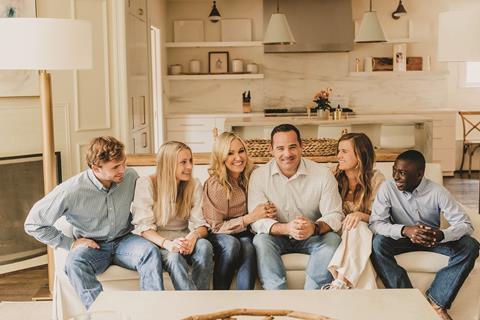
There’s a temptation for people to see your reach now and forget the years that you ran a tiny Bible study in your home. It’s easy to grow an online platform quickly nowadays, but is there a danger that we’re circumventing some of the process that grows character and competence?
I got tears in my eyes as you asked that question. I know so many people who are carrying the burden of a platform in their 20s. I don’t know whether it’s right or wrong but I think there is a loss for young people. They miss that season of being invisible, growing up privately and having a life before it is given away on a platform.
It is what it is; we’re not going to change that. What I would say is, the priority for each individual has to be: My personal life needs to be right with God. And that’s still true for me. I can easily fall into living for Instagram or for my PR. We’re always going to be tempted by external praise, success and power. That’s always going to be a seduction, whatever age you are.
We so quickly demonise things [such as platform], rather than saying: “What does submission and obedience and holiness look like for that individual in their sphere?” Whether you’re in front of a million, or ten people, like I was at my local church, we’re all going to war with the same demons.
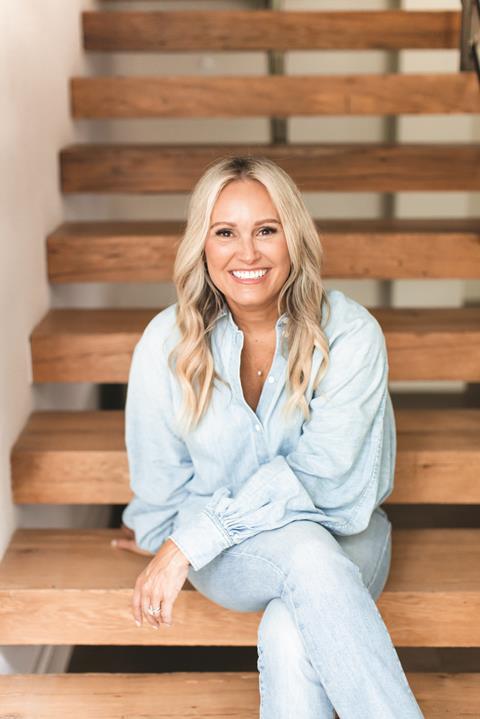
You were leading a church with your husband when you launched your first Bible study, but not all churches permit women to preach and teach. Have you ever come against that?
Oh yeah! Every woman has! But it’s less and less. I’m in a more conservative side of the Church, but even in that, I have pastors and elders that champion my gifts. Our church doesn’t have women [teach] on Sunday mornings, but they do in lots of other venues. Rather than fight cultural battles of what women can and can’t do, I’m like: Wherever God’s placed me, I’m going to use my gifts to the fullest. I am grateful to have a husband who champions me and elders that are the same way, so I live under submission to that. I don’t think of it as negative, I think of it as a gift.
Hebrews 12 has been lifesaving. I also pay for a therapist
I know people in situations that have been abusive, where they don’t feel they are worthy of using their gifts, and that’s not OK. God help those leaders who have not seen the women in their churches as equal co-heirs and co-labourers!
If you’re in an environment that is not healthy, or you don’t agree with the elders, go to a different church. Find a place where you can serve and use your gifts and thrive. But also submit to that leadership, because that is a clear model in scripture.
Has it been difficult to have the freedom to preach and teach internationally, but not be permitted to in your own home church? Some might wonder why you still go to that church?
I know somebody is [reading] this and thinking: She’s crazy! But if you’ve seen the fruit of my life, I’m not a limited person. I am reaching the world. I am influencing men and women. But part of God’s protection over my life has been submission. I have trusted the people around me. If you’re in a place where you trust your elders – assuming it’s healthy and biblical and not controlling – I just run things by them and I submit to what they say.
And I get it. I’ve read the [Bible] verses. If somebody says those verses are easy to interpret, I don’t trust them, because there is a tension. You see verses on prophetesses; you see women using their gifts; a call – universally – to the Church to go make disciples without a lot of other disclaimers. It’s a grey area…but that’s why I love the idea of submission.
The Church says ‘feelings are dangerous’. That’s not good theology
If it got unhealthy, my husband and I would have to pray about where we would go. But that’s one reason God set up models like that, so we figure out these things in community and local churches, with people we know, not on the internet with [people] from whole different countries and backgrounds and theological views.
Everybody’s probably going to land a little differently, but I believe we can agree to disagree and love each other and fight for the gospel together on earth. I wish there was more of that in the Church. We are so hyper-focused on the things we disagree on, rather than the mission God has given us.
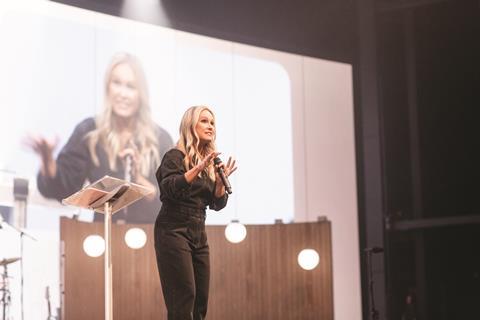
Let’s talk about your journey into writing. How did it start?
It all started with Bible teaching in my living room. When my Bible studies were appealing to a publisher, all of a sudden I had an opportunity. I sent the first few chapters of my first book [to the publisher] and I felt like I just wrote a journal entry. I’ve built a career on writing like I talk because my editor was like: “Just keep going.”
I don’t see myself as a writer; I see myself as a person who wants to give away God. I’ll use any means possible: books, podcasts, talks, conversation over dinner. I don’t see myself as a leader or a visionary, I see myself as a minister of the gospel. I believe in small groups of people. I believe in you, in your neighbourhood, with your people, making disciples. I’m not trying to be a New York Times bestselling author, I’m trying to be faithful, to build tools that bring people together to grow in discipleship.
If I lose everything tomorrow, if the internet decides to cancel me, if nobody buys my books, I’m fine
If I lose everything tomorrow, if the internet decides to cancel me, I’m fine, because I can do that wherever I am. It won’t change when I am back in my living room again because nobody will buy my books. I’ll be fine. That’s been super-centring for me.
Does sharing your life so openly ever feel like a pressure to you?
Certainly. I’ve sold a whole lot of books, so there’s a pressure to keep that up. It creeps up and, when it does, I say it out loud to the people that know me, and sometimes I’ll have a good cry about it. Then I’ll just remember: OK, this is what I’m doing.
I can look up and around or I can keep fixed on Jesus. My life verse is Hebrews 12: run the race, fix your eyes on Jesus, throw off “the sin that so easily entangles” you [v1-3]. That has been lifesaving. I also pay for a therapist!
Talking about therapy, you wrote on Instagram a while ago that you hadn’t loved reading the Bible in the last few years, and that it had caused you so much grief that you’d gone to counselling. Would you tell us about that?
Back to that pressure thing, I think I had associated my walk with God with work, because it’s very closely connected for someone like me. I had told myself: I should be doing these things, and if I’m not, I shouldn’t even be doing my job.
My counsellor said: “I want you to start noticing how many times your brain says: ‘I should be doing this.’” That’s my core lie. Turning that button off and going: “I’m not gonna say that anymore. I’m gonna say: ‘I really enjoy God and I want to be with him.’ What does that look like today?”
I could weep for an hour about what God is doing in Gen Z
I just loosened up a little and found my way back to a relationship with him. I learned to connect with God through prayer apps, beautiful devotionals, going on walks and listening to sermons. Sometimes I just watched The Chosen in bed and cried and worshipped God. It was really healing. I love reading my Bible but I needed a season where I didn’t feel like I had to.
Tell us about your new book, Untangle Your Emotions [Waterbrook].
I joined a small group where we were trying to do life differently. Instead of trying to fix things, the goal was helping us to feel things. I really didn’t see the purpose. Candidly, I thought it was much better just to change your mindset and be grateful. But those little things that happened to us when we were seven, twelve, 13, they’re still there. You can change that internal thought, but when it comes up again tomorrow and the next day, you’re really playing Whack-a-Mole with your thought life rather than healing. As I’ve gone back and learned not to be afraid of my feelings, it has changed me.
When I study my Bible, I see how emotional God is. When Jesus was in the garden of Gethsemane, the word ‘agony’ in the Greek is actually ‘anxiety’ or ‘fear’. If God feels emotions, they can’t be bad. They have to be good, because God feels them and gifted them to us. He made us in his image to be emotional people.
The theme of the book is that we are meant to feel our feelings. We all know emotions can cause trouble. And we all know people who don’t feel their emotions. They’re causing trouble too, because they’re suppressing it. And I promise you, your kids and your kids’ kids would appreciate it if you worked it out. So this is for both sides. Here’s what God meant for emotions. Here’s a healthy way to live and interact with them.
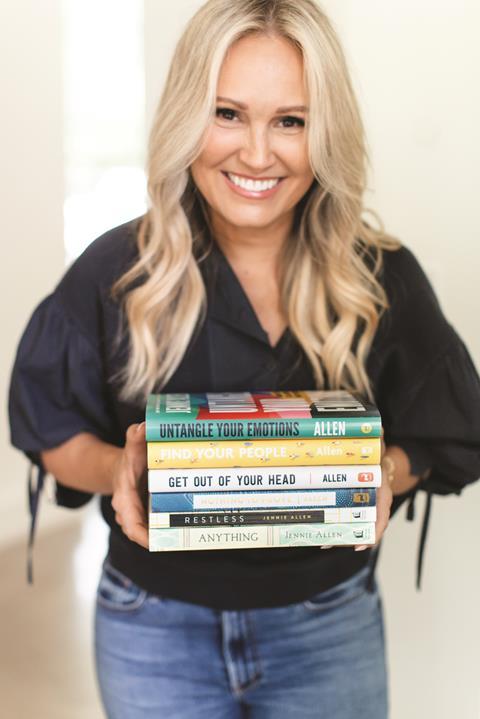
In Church, we talk about the spiritual, but we’re not always very good at putting together mind, body, soul and spirit within our theology…
I don’t find a lot of theologians writing about this. And I don’t think the Church has done a great job giving us a theology of our emotions. The world says: “Follow your heart and feelings; whatever you feel, follow it.” So the Church is like: “No, feelings are dangerous. Feelings are not reliable.” I get it. But it’s not good theology.
Scripture says: “mourn with those who mourn” [Romans 12:15]. It changes everything when you view this rightly. The reason therapy works is because you’re going back to a painful moment and, as your brain is not alone in that moment, your neural pathways begin to heal. I love doing the science with the Bible, because I’m like: “Oh my gosh! ‘Mourn with those who mourn’ – that’s why he said it!”
If you’re a husband with a wife who’s crying, you maybe don’t see a lot of sense in sitting there and crying with her. What good does that do? Except that your brain is healing her brain as you sit together, because it’s the way God made us. It’s just so beautiful.
What do you see God doing in the Church that most excites you at the moment?
I could weep right now for an hour about what God is doing in and with Gen Z. I was preaching the gospel at Auburn University recently. It was a free event on a Tuesday night and 6,000 people came! At the end, one girl wanted to be baptised. I said: “Would anybody else like to be baptised?” We baptised over 200 [students]! It was crazy! We finally had to stop at midnight. It’s the most fun I’ve ever had.
You saw it at Asbury [University, during the outpouring in February 2023] – they’re just so hungry. They want to repent. They want a different way. They’ve lived in darkness, and they’re sick of it. We are coming out of a season where the Church has been deconstructing everything. And [young people] are pretty fun to be around because they’re so single-minded. They’re either zealots for the world or they’re zealots for Jesus. I think that’s why I click with them so well. Fundamentally, I’m like: Yes, that’s how it should be. Either we’re in or out, you know?
So a year on from Asbury, is God still doing something new among Gen Z?
Oh, it’s just starting. No doubt. I’ve heard stories coming out of Brazil and from other countries – it’s spreading. The oldest Gen Z is 25 or 26 right now, so we’ve got ten years of this coming!
What can the wider Church do to support and encourage what God’s doing?
Please, please make disciples. Please. I left Auburn with 200 [young people responding to the gospel], and those church leaders, praise God, were there taking names and phone numbers. They’re gonna plug those kids into churches and make sure they are discipled. That is what is needed.
If they’re going to be the zealots that love God, they need somebody to say: “Come sit in my living room. I’m gonna teach you how to read your Bible. I’m going to teach you how to follow Jesus.” They need maturity; they need depth; they need growth. Because that’s how this faith life perseveres.
To hear the full interview listen to Premier Christian Radio at 8pm on Saturday 3 February or download ‘The Profile’ podcast premierchristianity.com/theprofile













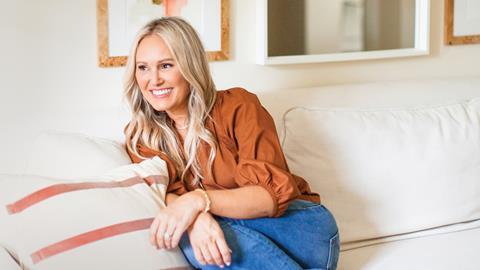

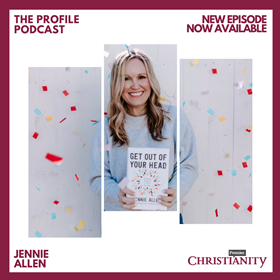

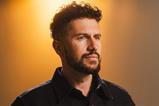






















No comments yet